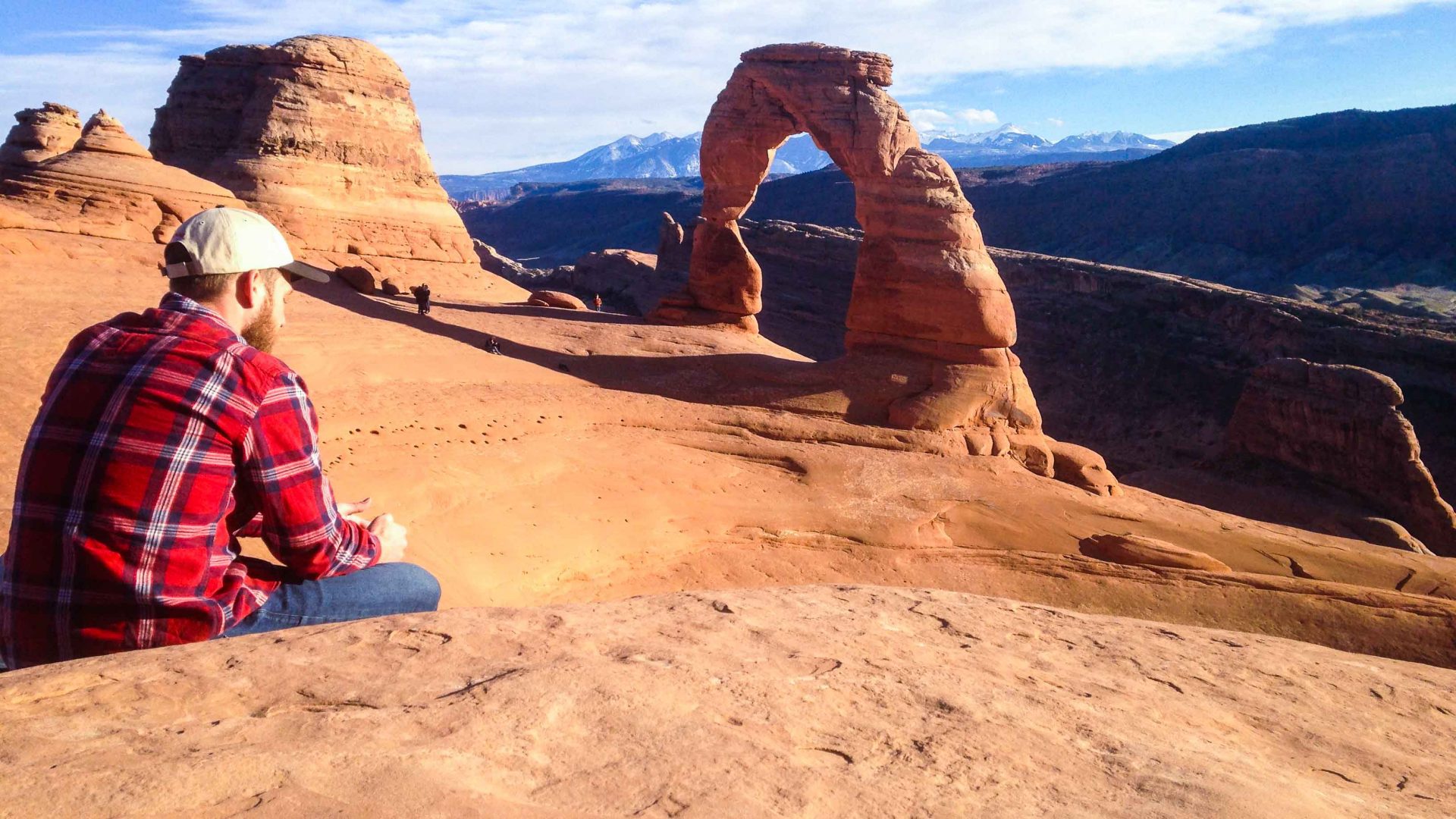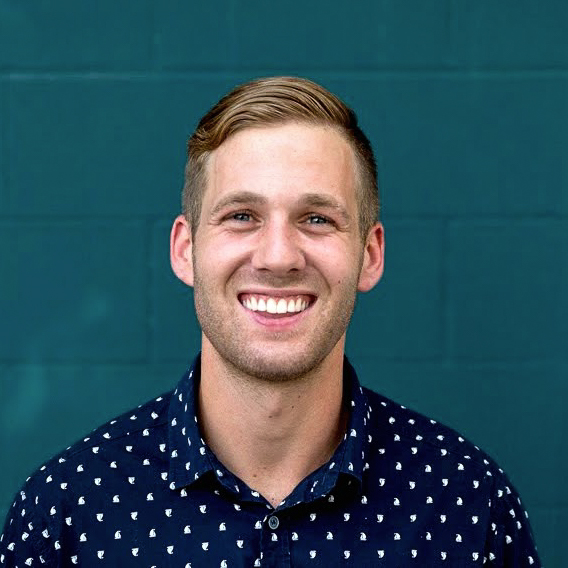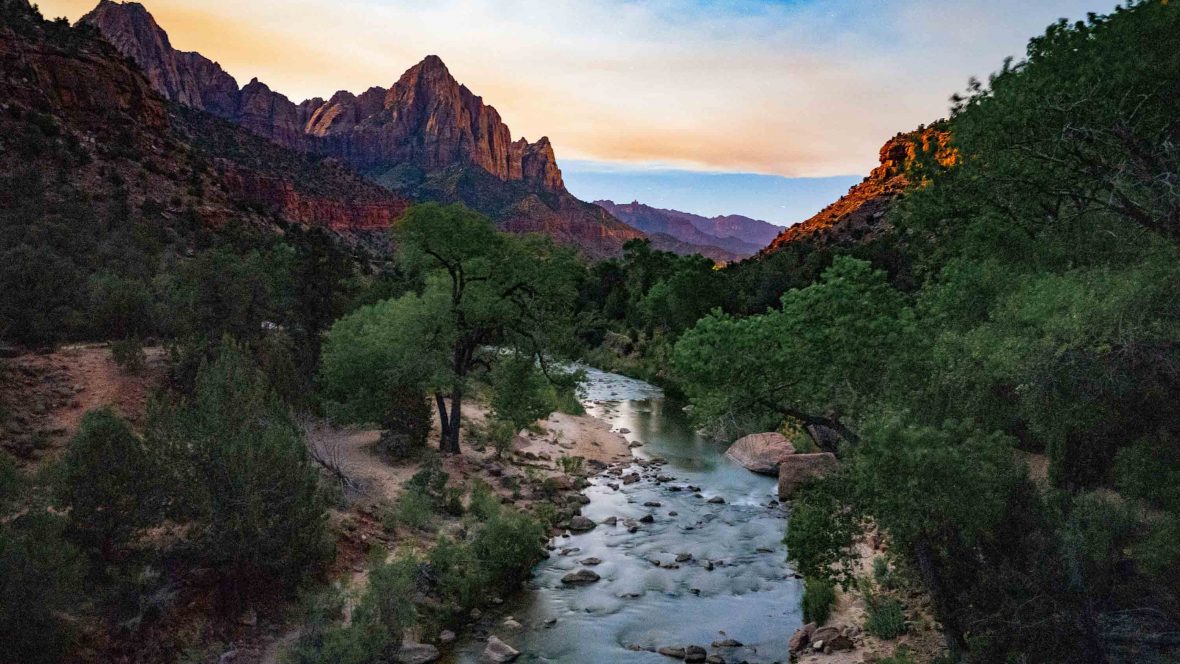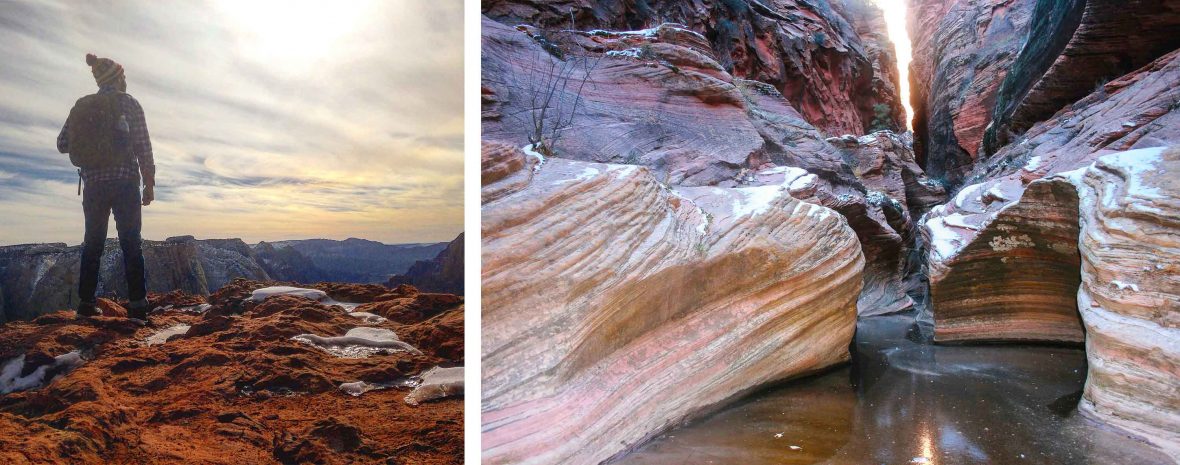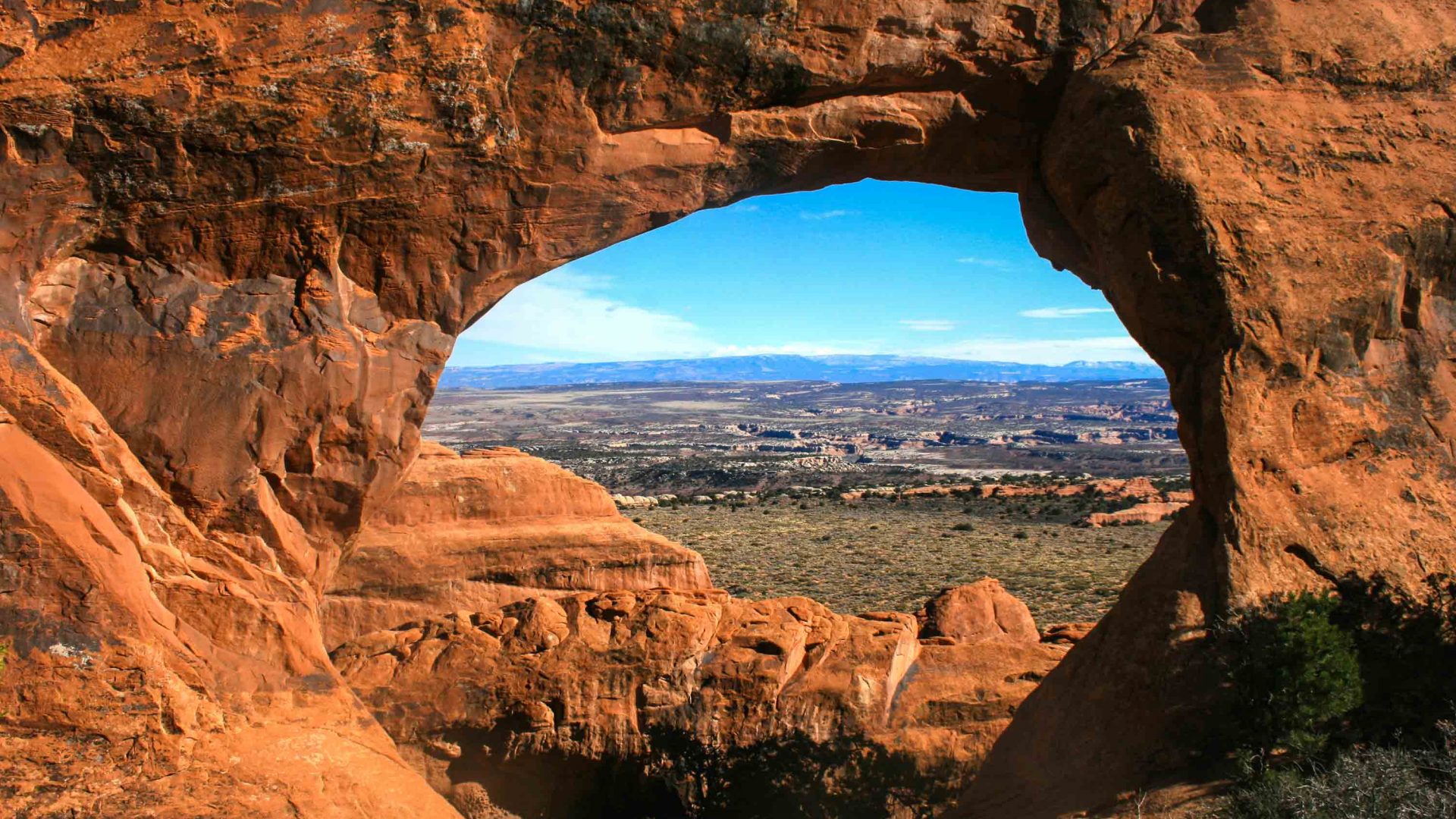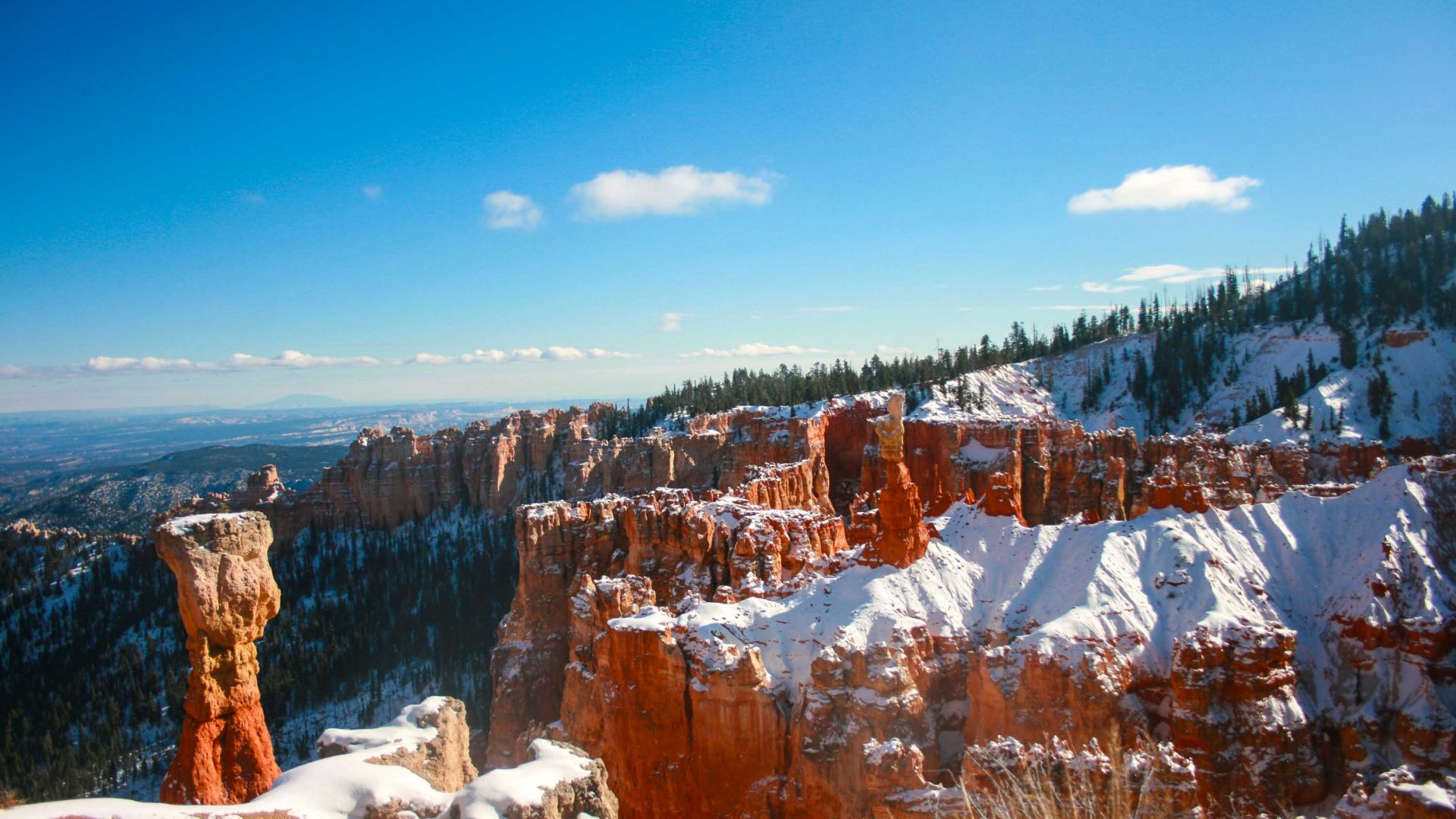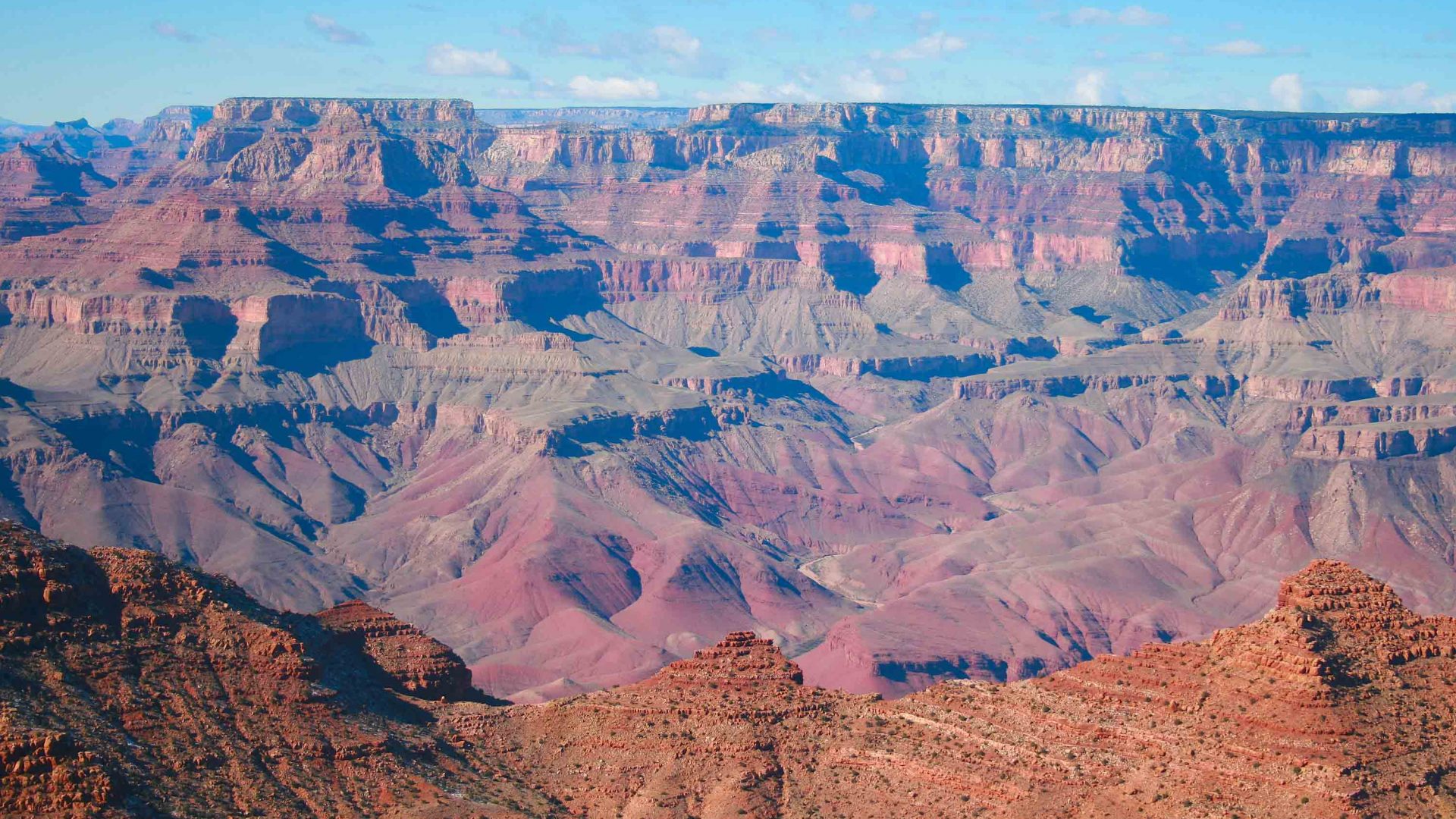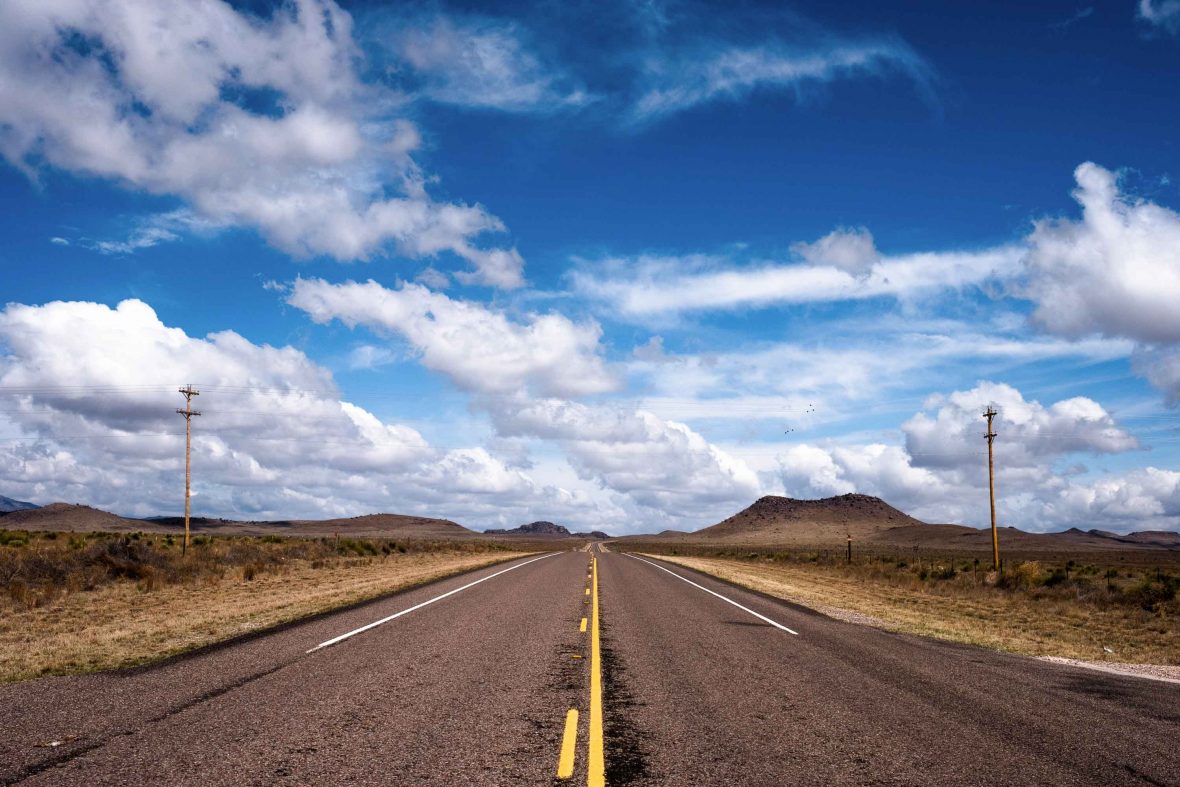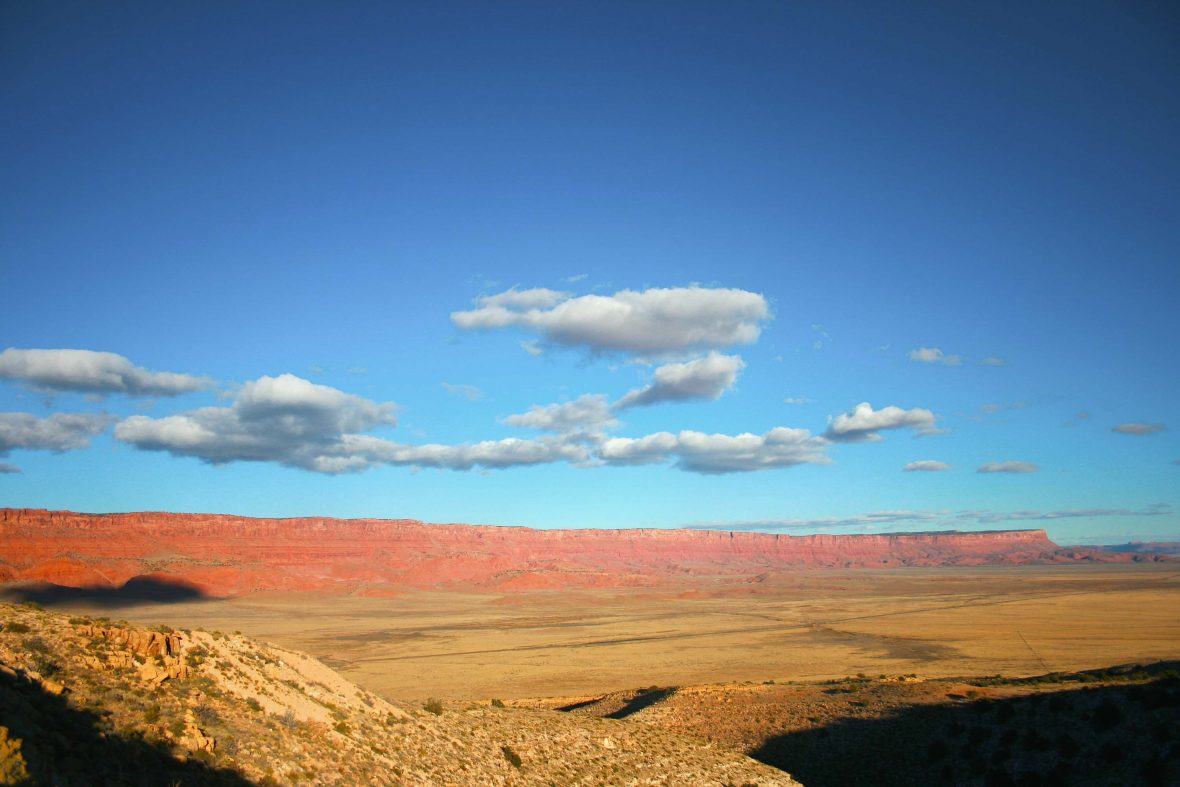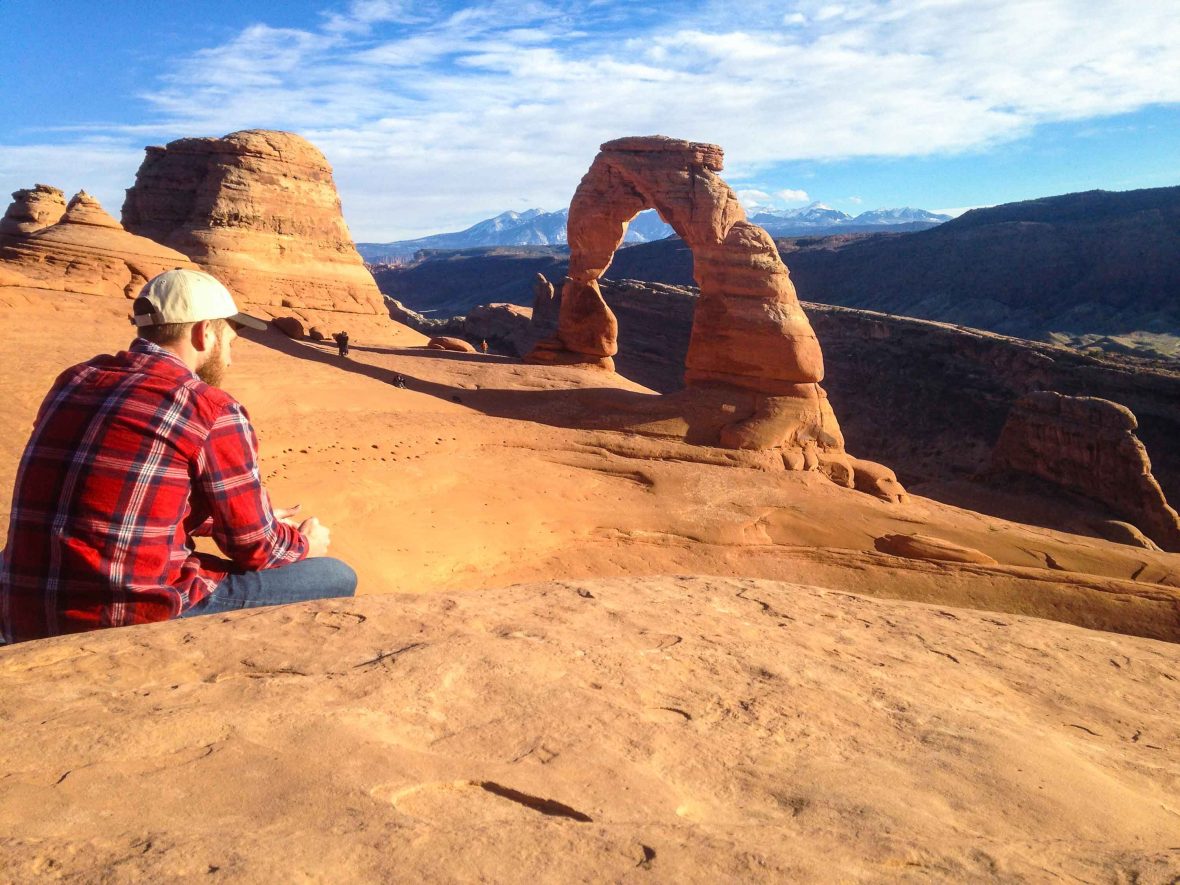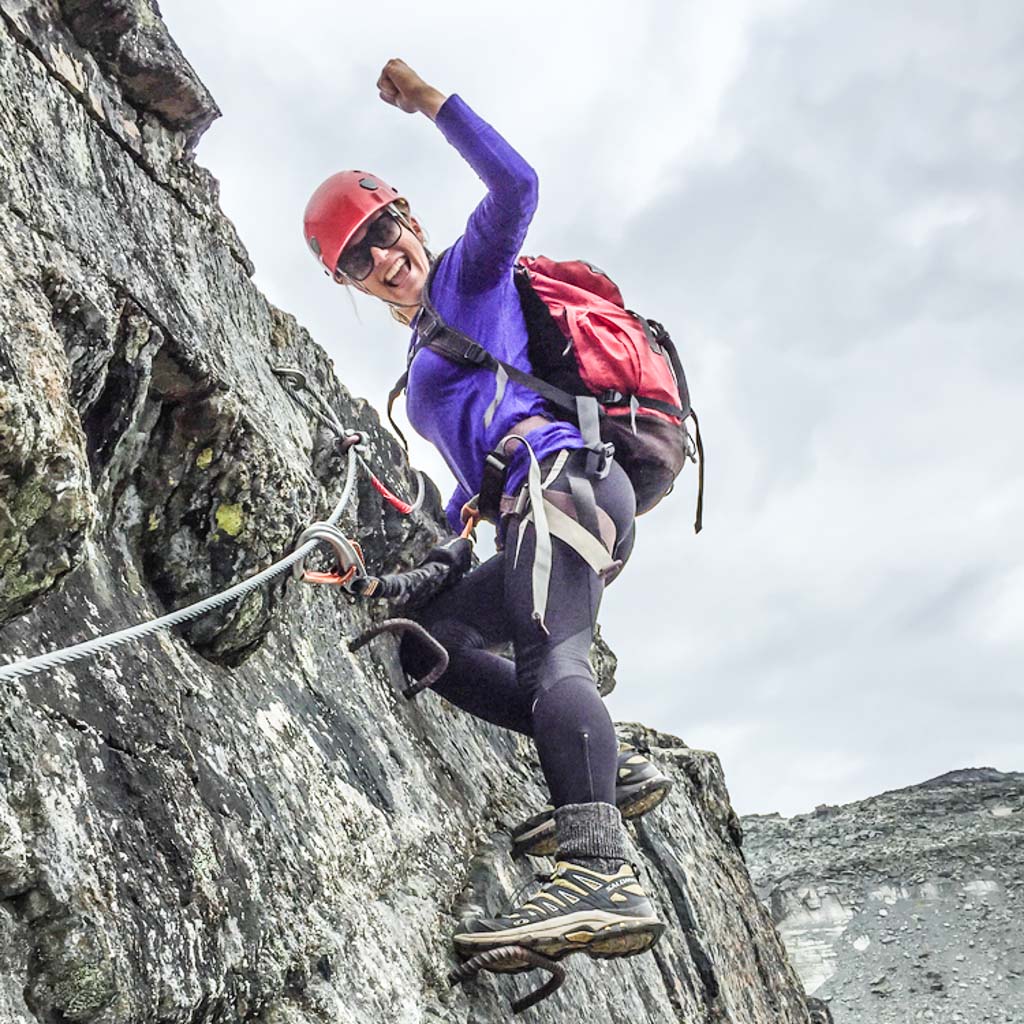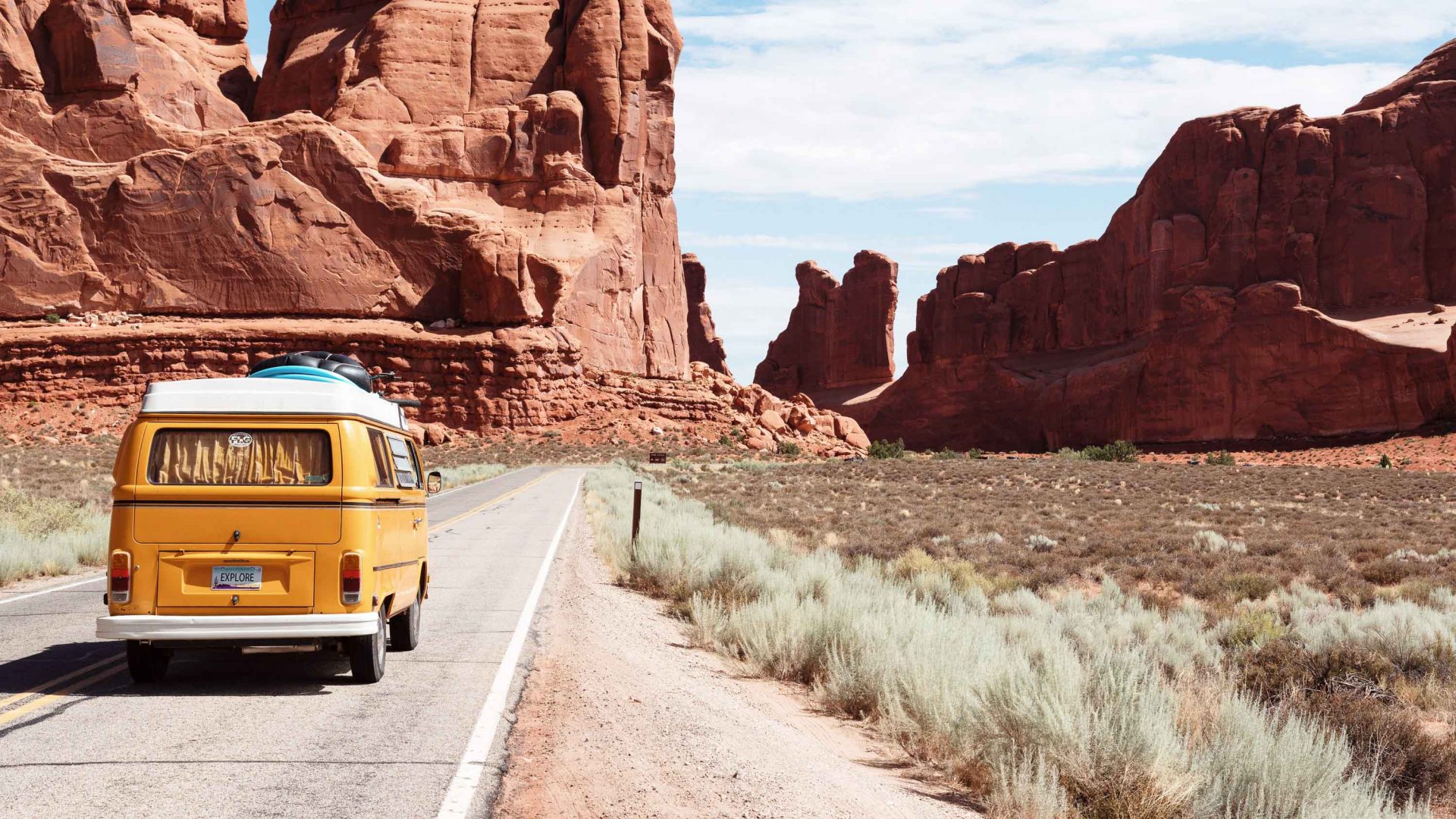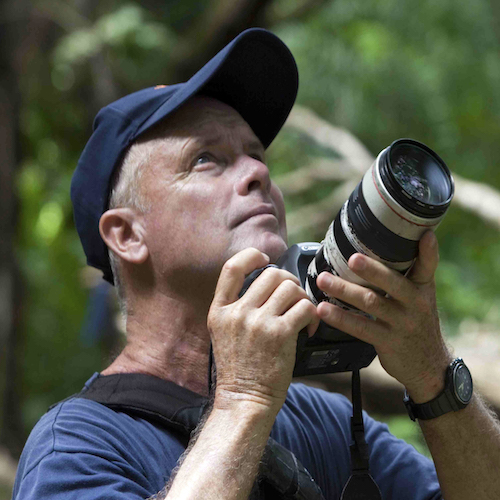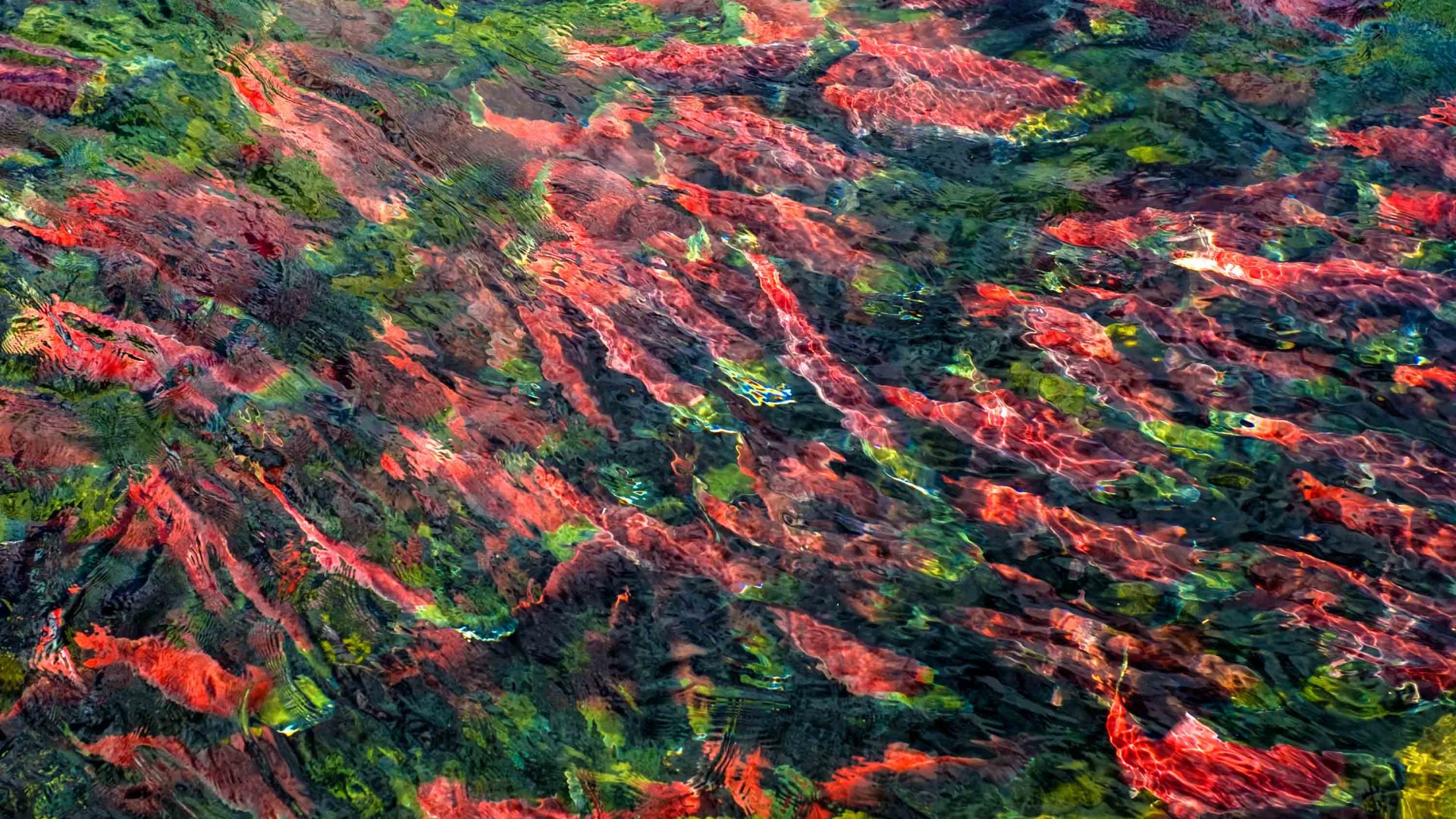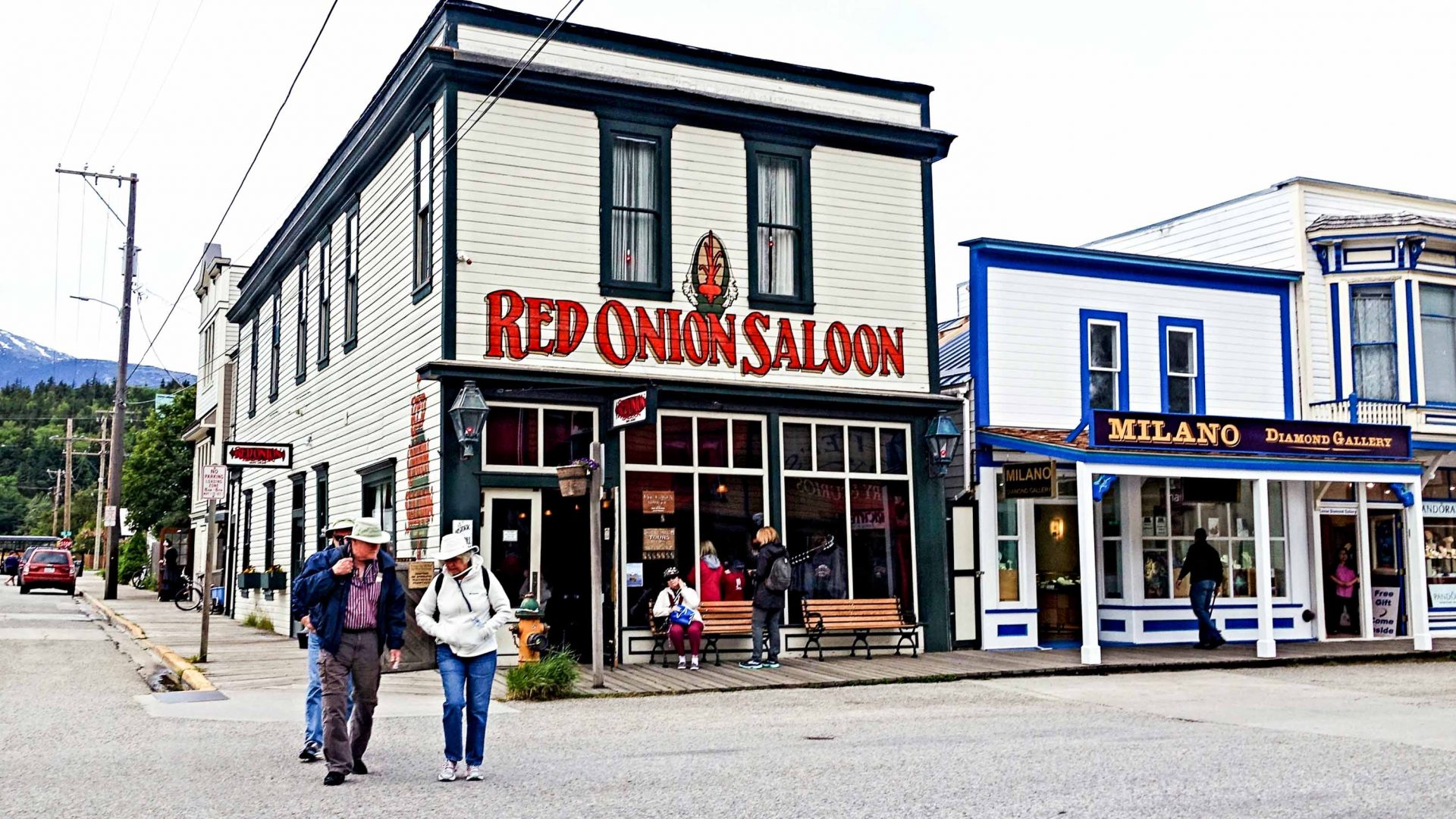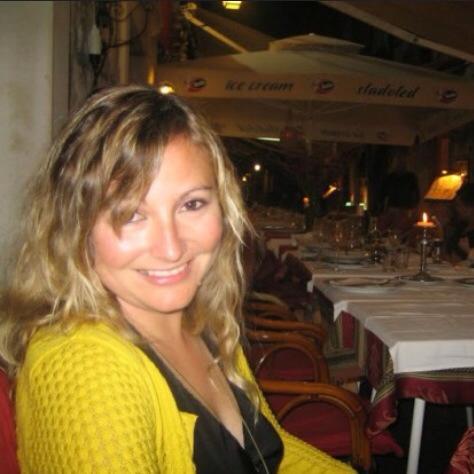It was supposed to be the ultimate father-son bonding trip but, after his father died of cancer, David Leffler was left to embark on his epic American road trip alone. To his surprise, each kilometer brought him closer to salvation.
On an icy morning in early December, I step out of my car and into southern Utah’s brisk winter air. Trying to warm myself up—it’s been below-freezing for the past week but today’s forecast projects a balmy temperature of five degrees Celsius—I throw a beanie over my head and glance around.
I’m surrounded by towering peaks, icy ridges and striking red rock, all of which are caked in a thick layer of snow from a recent flurry. A minute later, a family of deer scampers across the nearby road, their heads swiveling and ears fluttering before disappearing into the forest. In front of me, a large stone sign reads: “Welcome to Zion National Park.”
“Man, Dad would love this,” I mutter to myself, thinking back on all the stories about the American West—of cowboys, Native Americans, settlers, soldiers, and vast, boundless wilderness—that my father told me as a child.
Thirty minutes later, I packed up my things and started my hike up Zion’s Observation Point Trail, a renowned lookout known for its breathtaking views and extreme elevation. As I work my way up the first of many slippery switchbacks towards Observation Point, I can’t help but look back on everything that’s led me here.
RELATED: In praise of America’s storied Gold Rush saloons
A historian, author, and teacher, Dad had always been fascinated by life on the frontier and those daring few who braved journeys through unchartered territory. Shivering, my smile falls when I realize we can’t share this moment together.
His absence is the reason I’m standing here, thousands of kilometers from my home in Texas. He died last year from cancer, you see.
I knew the first few days would be lonely, so I brought along a couple pictures of my dad, a journal, and several books he’d written over the years. The books—his proudest accomplishments—were especially precious to me. Each contained handwritten inscriptions from him and swathes of information he’d obtained while conducting interviews with tough Texas lawmen, descendants of legendary families, imposing statesmen, and rugged ranchers. These works were my final gateway into his mind.
I quickly developed a routine on the road: Drive, hike and sightsee during the day, then journal and read Dad’s books at night. The days flew by. By the time I reached Zion, I’d driven nearly 2,000 kilometers and had toured the snow-capped Grand Canyon in Arizona, gazed upon the surreal formations at Arches National Park, drove along the mesmerizing hoodoos at Bryce Canyon, and stopped at every tiny town in between.
For the first time since I could remember, I had the levity and space to step away from my grief. With my head clear, I felt free to reflect on fond memories of Dad that I’d initially blocked out.
Things took an ugly, confusing turn from there. Over a six-month span, Dad’s condition oscillated from good, to bad, to great, to awful, with each doctor’s visit and treatment session bringing new fears and possibilities to the surface. But as the radiation appointments piled up and our options began to dwindle, it became painstakingly clear he wasn’t getting better.
By the time my 22nd birthday rolled around, I was crying myself to sleep almost every night. All I could think about was the fact that, barring a miracle, my future children would never meet my father.
Finally, after a struggle with cancer that lasted nearly two years, Dad passed away at the age of 63. He left in his wake a life’s worth of lessons on love, compassion, history, the power of listening, and appreciating every day,and every person, you’ve got—a legacy I’d been too hurt to embrace before this trip.
All of these memories flash through my mind as I make my way towards Observation Point. Trudging along the path’s steep, muddy surface, I’m blown away by the hulking cliff faces and towering canyon walls each turn of the trail brings, their sides a collection of white, brown and rusty red rocks.
RELATED: How to travel like a travel writer
Outside of the cool winds blowing through, the entire place is silent. In fact, save for a few bighorn sheep and a handful of squirrels foraging for nuts, I hadn’t run into a living thing during the entire grueling trek up. Luckily, I was looking for solitude.
Before Dad got sick, I was like a lot of young people: Carefree, lost in my own world, and likely a little shallow. But after seeing how truly unpredictable and precious life is, I’d emerged with a heightened understanding of how fleeting happiness can be and how fragile our worlds are. For the past year, this realization had hardened my heart and jaded my world view.
But after finally reaching Observation Point and drinking in every nook, cranny and cliff Zion had to offer, I realize I’ve had it wrong. Life isn’t dark and empty; It’s an exhilarating hodge-podge of experiences, adventures, and chances to grow. Good or bad, there’s always a lesson to be learned.
Before beginning the long walk back to my car, I step onto a jagged cliff for one last glance at Observation Point’s overlook. Taking in the arctic mountain air, I wonder what Dad would say if he was here with me.
Probably nothing, I laugh. Just a smile, a squeeze on the shoulder, and a look that said, “Man, this is what it’s all about, huh?”
